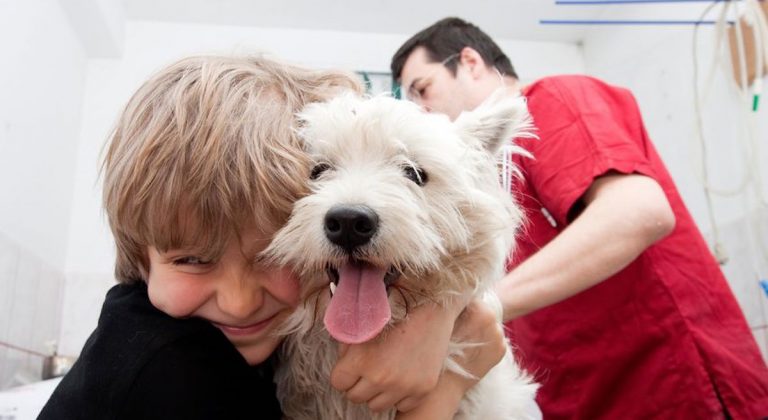How to Protect Ferrets From Heat Stroke During the Summer
Much like other animals, ferrets can suffer from heat stroke. Learn to recognize the signs of overheating and how to help your ferret.
Anja Delic wrote this featured contribution. Anja loves ferrets and wants to show others how they are great animals and perfect pets. She has a blog, Friendly Ferret, where she writes about her little ferret Frida and ferrets in general. Anja is sharing her knowledge, including interesting tricks to help you and your ferret in different situations.


Don’t leave your pet’s safety to chance
Sign up for Petful recall alerts today.

Why Ferrets Struggle With Summer Heat
Ferrets are particularly sensitive to heat, and as temperatures rise during mid-summer, their health can be at serious risk. Unlike humans or even dogs, ferrets have no effective way to regulate their body temperature. Here’s why:
- They don’t sweat: Ferrets lack sweat glands, so they cannot cool themselves through perspiration.
- Panting isn’t an option: While dogs pant to reduce heat, ferrets don’t rely on this mechanism, making them vulnerable to overheating.
When the area around your ferret’s cage exceeds 80 degrees Fahrenheit (27 degrees Celsius), their furry coat traps heat, increasing the risk of heat-related issues. It’s essential to take proactive steps to help your ferret stay comfortable and safe during the hot months.
If you’re new to ferrets, check out these 10 things to know about ferrets to better understand their unique needs and behaviors.
How to Keep Ferrets Cool in Hot Weather
Ensuring your ferret stays cool during the summer months is essential for their health and comfort. Here are practical ways to help your ferret beat the heat:
- Provide fresh, cool water:
- Always ensure a constant supply of fresh, cool drinking water for your ferret.
- While you can’t force them to drink, making water accessible at all times is key to preventing dehydration.
- Use frozen bottles:
- Freeze plastic bottles filled with water and place them around the cage, in favorite lounging areas, or anywhere your ferret hangs out.
- Wrap the bottles in fabric to prevent your ferret from chewing on the plastic. These double as cooling agents for your pet and the surrounding area.
- Air conditioning tips:
- If you have air conditioning, position it carefully. Place the unit near the cage but diagonally, ensuring it doesn’t blow directly at your ferret.
- Direct airflow can be uncomfortable, but a strategically cooled room can help keep your ferret safe from overheating.
By following these methods, you can create a comfortable and safe environment for your ferret, even during the hottest days.

Recognizing the Signs of Heat Stroke in Ferrets
Heat stroke is a serious and potentially fatal condition for ferrets, especially during hot weather. Knowing the warning signs can help you act quickly and save your pet’s life.
Common Signs of Heat Stroke in Ferrets:
- Lethargy: Your usually energetic ferret may become unusually tired, sluggish, or unwilling to move.
- Drooling, vomiting, or gasping: These are clear indicators of overheating and should not be ignored.
- Lying flat on the floor: A ferret experiencing heat stroke may lie completely flat and appear weak or immobile.
- Excessive panting or salivating: Open-mouth breathing and heavy salivation can signal extreme distress.
- Mucus discharge: A buildup of mucus around the nose or mouth is a potential symptom.
- Flushed appearance: The ferret’s skin may appear red, particularly around the ears, face, or body.
- Red footpads: Check the pads of your ferret’s feet for redness, which can indicate overheating.
- Glassy eyes and shallow breathing: A dazed look and weak, shallow breaths are critical signs.
- Seizures: Severe heat stroke may lead to convulsions, indicating an emergency.
If you notice any of these symptoms, it’s crucial to take immediate action to cool your ferret and seek veterinary help. Early intervention can make all the difference in preventing long-term complications or fatalities.
Recognizing and Responding to Heat Stroke in Ferrets
Identifying heat stroke in ferrets early can make the difference between life and death. Common signs include lethargy, drooling, excessive panting, and lying flat on the floor. Ferrets experiencing heat stroke may also show symptoms such as:
- Vomiting or gasping for air.
- Mucus around the nose or mouth.
- Flushed skin or red footpads.
- Glassy-eyed appearance or shallow breathing.
Steps to Respond to Heat Stroke:
- Act immediately: Begin cooling your ferret gradually using a damp towel or tepid water, as rapid cooling can cause further complications.
- Provide a calm environment: Speak softly and reassure your ferret to reduce their stress during the cooling process.
- Seek veterinary help: Heat stroke can have delayed complications, so consult a veterinarian even if your ferret seems to recover.
Understanding and promptly addressing these symptoms is vital to protecting your ferret from severe consequences.
How to Help a Ferret During Heat Stroke
If your ferret shows signs of heat stroke, it’s crucial to act quickly but carefully to stabilize their condition. Here are steps you can take before reaching a veterinarian:
Step 1: Cool Your Ferret Gradually
- Use a cool (not cold) wet towel:
- Gently wipe your ferret with the towel, covering all parts of their body: head, paws, tail, and legs.
- Gradual cooling helps lower their temperature safely without shocking their system.
Step 2: Bathe in Tepid Water (If Necessary)
- If the towel method doesn’t work, you can try a lukewarm bath:
- Fill a tub with COOL or tepid water — avoid cold water, as it can cause dangerous temperature shocks.
- Slowly place your ferret into the water feet-first, ensuring they feel comfortable.
- Use a cup to pour water gently over their body, starting from the tail.
- Tip: Ferrets may dislike water, so keep them calm with soft words and a soothing tone.
Step 3: Seek Veterinary Care Immediately
- Even if your ferret seems to recover, heat stroke can cause complications later.
- Contact a veterinarian as soon as possible. You can continue to wipe your ferret with a cool towel during the car ride while someone else drives.
Important Reminder:
Ferrets recovering from heat stroke may appear normal but could develop severe complications in the days following the incident. Always follow up with a veterinarian for a full assessment.
By acting promptly and seeking professional care, you can significantly improve your ferret’s chances of a full recovery.
Preventing Heat-Related Illnesses in Ferrets
Prevention is always better than treatment when it comes to protecting ferrets from heat-related illnesses. Follow these best practices:
- Maintain a cool environment: Use air conditioning or fans to keep the room temperature below 80°F (27°C).
- Limit outdoor exposure: Avoid taking ferrets outside during peak heat hours and always provide shade if they’re outdoors.
- Hydration is key: Ensure fresh, cool water is available at all times, and consider adding ice cubes to their water bowl.
- Monitor your ferret: Keep an eye on your ferret’s behavior during hot weather for early signs of discomfort or overheating.
By staying vigilant and providing a comfortable, cool habitat, you can greatly reduce the risk of heat stress and related illnesses in ferrets.
For more insights on caring for ferrets and other pets, explore our other pet care resources to expand your knowledge.
Frequently Asked Questions (FAQ)
How long do ferrets live?
Ferrets typically live between 5 to 10 years, depending on their care and overall health.
What do ferrets eat?
Ferrets are obligate carnivores and require a diet high in animal protein and fat, such as raw meat, high-quality ferret food, or kitten food.
Are ferrets good pets?
Ferrets can make great pets for experienced owners, as they are playful, curious, and affectionate, but they require specific care and attention.
How much are ferrets?
Ferrets usually cost between $75 and $300, but ongoing expenses for food, housing, and vet care should also be considered.
Why are ferrets illegal in California?
Ferrets are illegal in California because they are considered non-native species that could harm local ecosystems if they escape and establish wild populations.
References
- “Ferret Advice and Welfare.” RSPCA. https://www.rspca.org.uk/adviceandwelfare/pets/ferrets
- “Ferrets.” Humane Society of the United States. https://www.humanesociety.org/animals/ferrets
- “About Ferrets.” Centers for Disease Control and Prevention (CDC). https://www.cdc.gov/healthy-pets/about/ferrets.html







